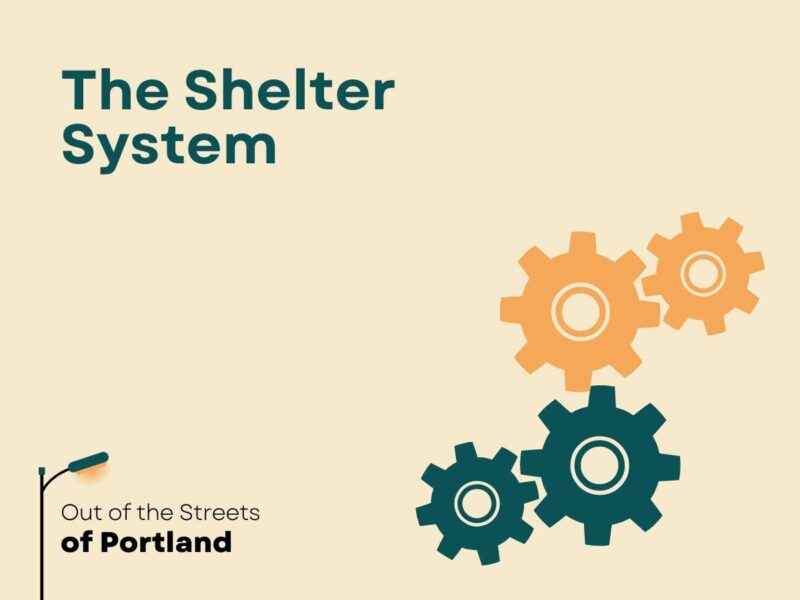Season 1, Episode 2
The Shelter System
Episode Page| Direct link to Audio File
Listen on Spotify
Today on Out of the Streets of Portland, we’re going to hear about how our expanding and innovative shelter system works, how people can access shelter, and what it means to expand shelter alongside a Housing First, but not Housing Only practice that centers the people’s needs in the re-housing process.
You can find more information about our shelter system, including a map of locations, by clicking the button below.




